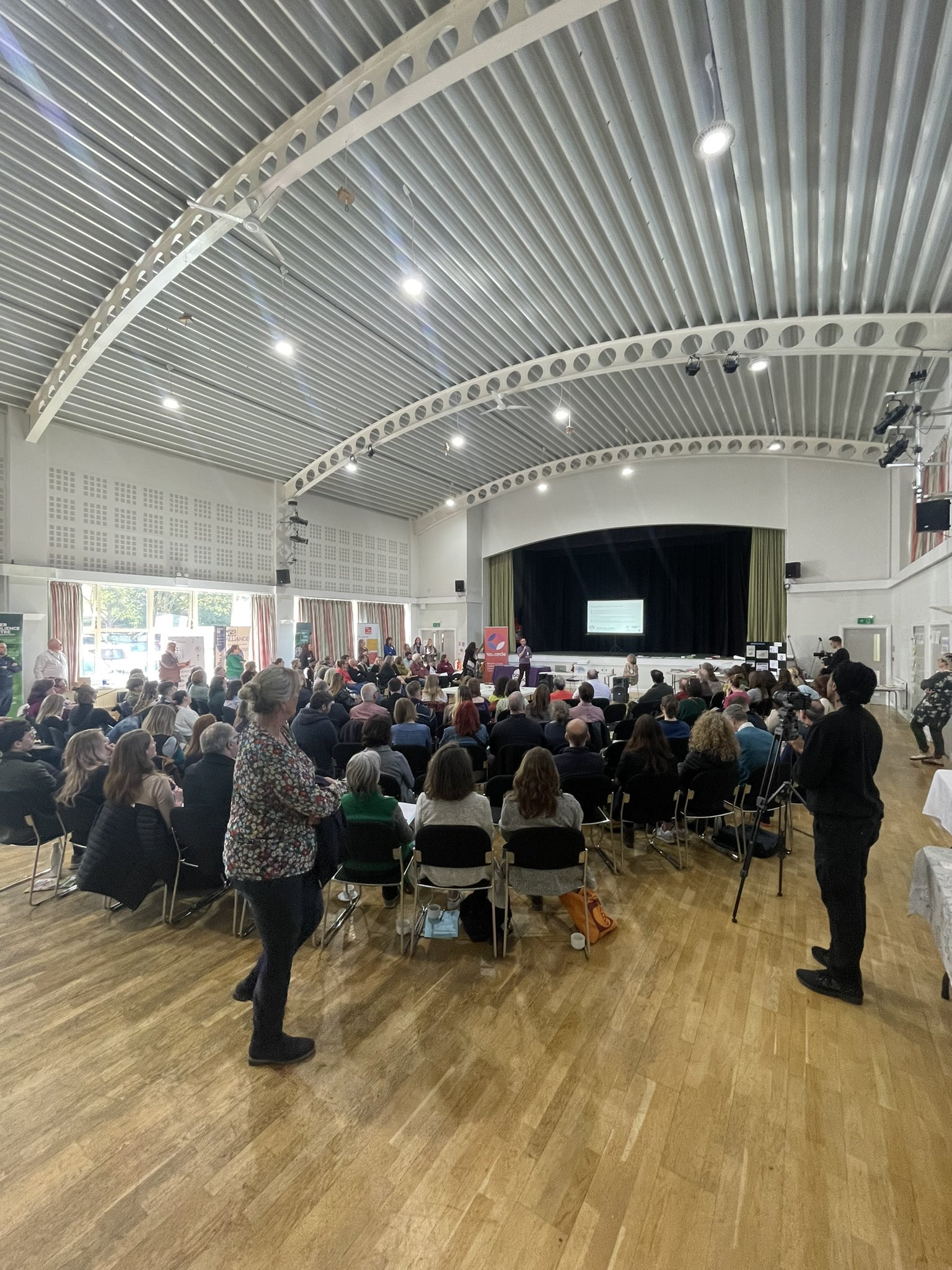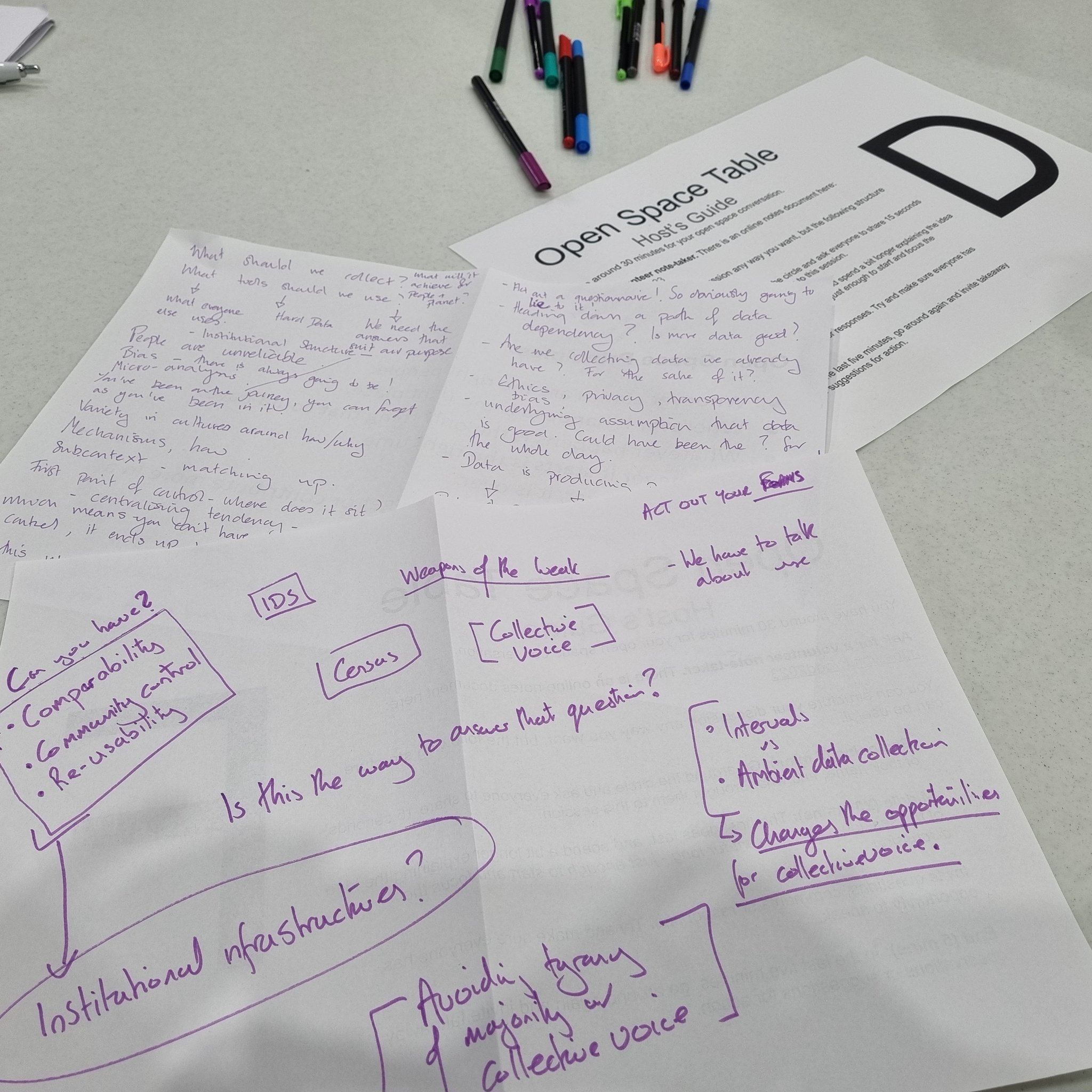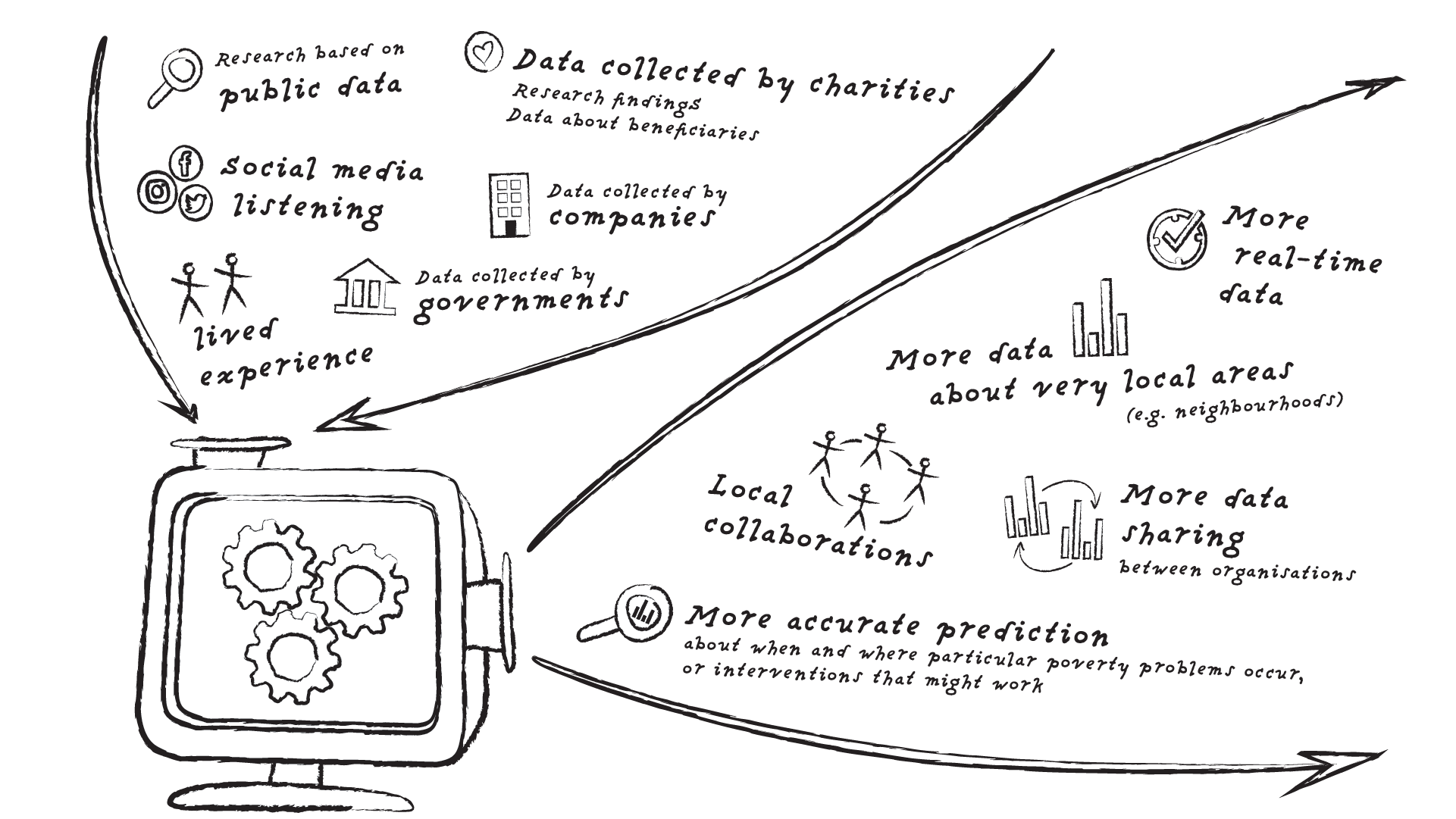These will have to count as month-notes, as April has been rather packed, and with bank holidays and lots of workshops, end-of-week reflection time has been short.
Design Labs
One of the approaches we’ll be experimenting with this year, in support of our overall strategic goals and roadmap, is to run a series of ‘design labs’: problem focussed convenings that try and create some concrete outputs or outcomes. We’ve got three now in the works:
-
Future Data Narratives Design Lab - where we’ll be running a one-day workshop on 25th May around media, policy, and industry narratives around data - both in the UK and globally.
-
Policy Lab: A global policy agenda on collective data governance - which we’re hosting as a fringe event of RightsCon in Costa Rica, along with partners from Aapti Institute, Research ICT Africa, Datasphere Initiative and Consumers International, to look at shared advocacy agendas on collective data governance at a more international level, and hopefully support some shared planning.
-
Practice Lab: Exploring participatory data governance through games - which I’m really excited about. Supported by Jess Metheringham from Dissent Games, I’m looking to bring together 6 - 10 people involved in supporting participatory data governance at different levels, to explore how game-design can help us to navigate and communicate the different choices involved in the design of inclusive, engaging and powerful data governance practice. Initially we’ll be convening through a series of Zoom calls in May and June ready to test an early prototype at the Data Justice Conference in Cardiff mid-June. If you might be interested in getting involved - drop me a line.
Data Day: ‘Form’ing and norming
This week all the planning and prep that went into Gloucestershire Data Day came to fruition with a sell-out event bringing together 150 people in a community hall in Gloucester to talk about data from many different directions.

I’ll share more reflections from the event soon - but I wanted to pick up on one theme that really stuck me through the day around the role of ‘forms’.
For many of the practitioners present at the day (or, at least some of those who joined round the open space tables I sat at) data is not generally experienced in terms of big systems, or analytics and predictions - but in terms of the forms that they are asked to fill in. For example, application forms for funding, or reporting forms completed pre- and post- intervention when running a course of workshops with young people. These forms, the starting point of evaluation or research, are often experienced as unhelpful interventions: disrupting, for example, relationship formation with marginalised young people who have reasonable distrust of authorities, or causing funded organisations to twist their practice to fit into the confines of the forms data collection.
Yet, clearly, those distributing and collecting data through these forms do not intend these effects. Rather, the demands of their spreadsheets and systems lead, without careful design, to the creation of inflexible forms that can, ultimately, do harm, in the settings where they are deployed.
As we explored this in break-out sessions, a couple of interesting collective, participatory and powerful responses were raised.
-
Just say no. One participant recounted how they had simply refused a funder request to capture ‘intrusive’ detail about the participants in their projects: explaining that they were evaluating in other ways, but that the kind of data collection demanded would undermine their practice. The funder, they reported, had accepted this. Others around the table, subject to the same data collection requirements, were surprised to consider the option of refusing to collect - which sparked a conversation about how groups might come together to collectively question data collection requirements imposed upon them.
-
Participatory design. We discussed how those creating data collection instruments could think more about co-designing these with the people who will have to fill them in, those whose data is to be captured, or those who will be affected when the data is processed. This could be as simple as a short-call or meeting with stakeholders before a form is finalised, or might involve more creative processes to step back to think about why data is being collected, and to consider different methods for capturing information. Personally, I really want to experiment more with ‘for(u)m theatre’: ‘role-playing’ data collection forms (i.e. reading them as a script with two or more interlocutors), to bring into relief the tone and nature of the relationships they create.
-
Group discussion. Sometimes the reality is that groups might have to choose between meeting a data collection requirement and getting funding or resources, and refusing data collection and forgoing support. We talked about how, in the context of a youth group, or class of students, rather than this choice being made by a group leader, it could provide an opportunity for a critical group discussion: learning about who is collecting data on the group, and why, and weighing up together the costs and benefits of meeting an imposed data collection requirements. This would bring into relief how decisions about data governance are often very much both matters of collective choice (do we, as a group, want to use these evaluation tools), and individual choices with collective impact (e.g. if five members of a group of fifteen make an individual choice not to fill in evaluation forms, and this causes the group to ‘miss’ a funder target, the impact on the group may be a loss of funding).
In short, I’ve taken away a new set of reflections about how supporting effective data governance in the everyday may be just as important to support (if not more so) than large-scale data governance reforms.

Grassroots Engagement
Also on the theme of grassroots engagement, last week we had the opportunity, as part of our JRF Ecosystem Mapping & Engagement project, to engage with Joseph Rowntree Foundation’s Grassroots Poverty Action Group, and explore their input to draft governance strategies for the proposed poverty insight infrastructure.
The short session was packed with fantastic insight from the group (written up by Alan Hudson here), responding to a set of stylised scenarios we presented, based on potential aspects of the insight infrastructure.
Putting these together involved a couple of iterations to get towards clear language (and in the session we were (rightly) still called out on a few places where we were expressing ideas in inaccessible form), and developing of a set of diagram sketches (thanks to Virgil at Convincible) to illustrate each scenario and draw out some additional elements for participants to respond to.

We focussed discussion on asking participants about the questions the scenarios raised for them: and starting from questions in this way generated some rich discussion.
Overall, for me, (in addition to all the specific insight for the Ecosystem Mapping & Engagement project), the session reinforced the point that, if we do the work to prepare clear materials, and to listen well to inputs, participants with no background in data at all can engage meaningfully in shaping data governance - even in just a 45 minute session*.
(*Though, recognising the GPAG are a well-formed group, with established relationships and trust in their facilitators, not a group meeting for the first time)
Other things
-
It’s been great to have Emily join the team as our new head of Delivery and Operations. I’m very much looking forward to having someone helping keep me on track with delivering lots of the things I’ve committed to this year, and not quite got over the line yet!
-
Last Thursday I chaired the a panel for the Data for Development network on ‘Global Observations on the State of Open Data’ where we interrogated the interaction between the open data field, and broader movement for data justice, data for development, and data values. It was a rich conversation, and will be feeding into the introduction and conclusion of State of Open Data that I’m co-writing with Renata Avilla. The recording is up on YouTube here.
-
Along with Dr Judith Townsend (one of the fantastic group of Connected by Data Fellows) we’ve submitted a proposal to the Digital Good Network’s first open reseach call, titled “Datafication of Courts and the Digital Good” and seeking to build on some of our learning from the Justice Data Matters evaluation.
-
We’ve been booking travel for RightsCon in San Jose, Costa Rica at the start of June. Drop me a line if you’ll be there and want to connect!
